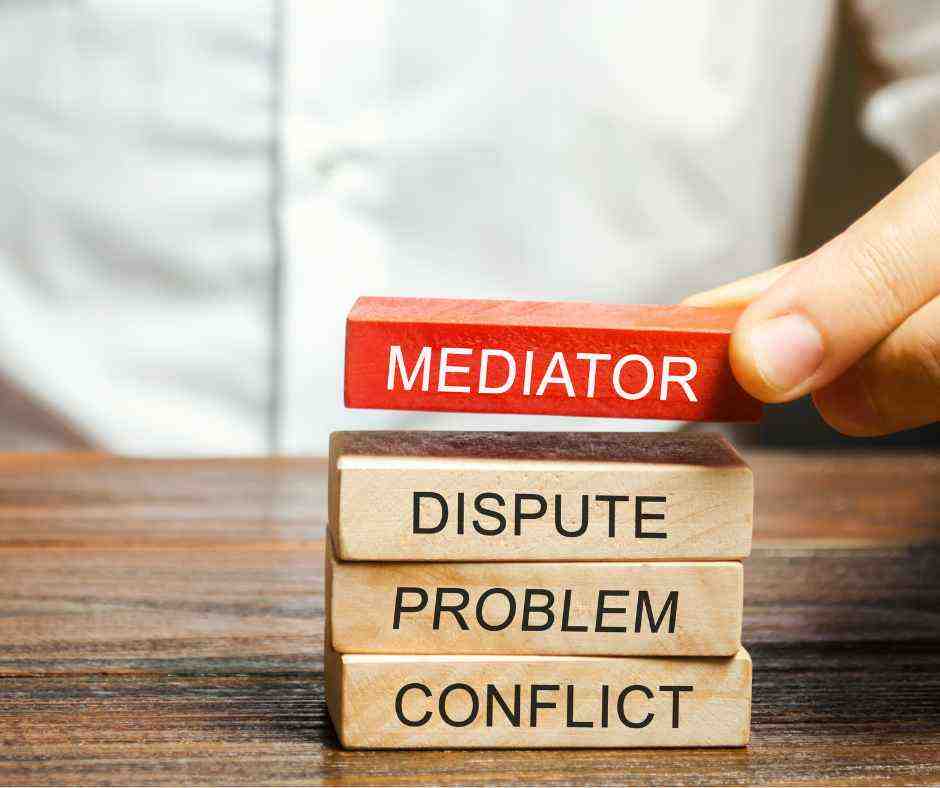What is Mediation?
Mediation can help separating families manage their issues productively and collaboratively.
Who is mediation for?
Mediation can help resolve the issues between two parties, whether married or cohabiting and with or without children, that arise following the breakdown of a relationship.
How is mediation different from taking the traditional route of seeking an individual family lawyer's advice?
Mediation can happen at any stage. It may be appropriate once you have considered the broad position with your family lawyer and have taken advice or may be helpful before you see a lawyer / Solicitor as an alternative way of resolving your dispute.
Mediation has the potential to assist parties in resolving issues about their finances and their children directly with their former partner, whilst also enabling them to retain control of the process themselves. In effect this means that important issues can be discussed between the parties, in one or more meetings, with a trained mediator. The mediator is impartial and is there to assist you in finding the best solution for you and your family. The mediation can take place alongside independent legal advice if this is the wish of the individual.
Mediation will be a cheaper solution as the costs of the individual sessions, which may last one and a half hours, are shared between the parties. Each mediator will set out their hourly rate and will normally estimate the number of meetings that may be required. If a settlement proposal is agreed between the parties during the mediation, the mediator will then prepare a document known as a ‘Memorandum of Understanding’ which explains to the parties’ individual Solicitors what has been discussed and what principles have formed the basis for their proposal. The parties’ family lawyers will advise each of them separately on the proposal. If part of the proposal is a financial agreement, the lawyers / Solicitors can draft the proposal into a formal document known as a Consent Order, which if all agreed, is signed by the parties, and sent to Court for a Judge to approve and seal. It is when the Order is sealed that it is made binding on the parties. The proposals about the children’s arrangements are contained in the Memorandum of Understanding but are not normally put into a Court Order to be sealed unless there are reasons why this is necessary.
How does mediation work?
The parties in mediation have a series of structured meetings with a mediator or mediators present. In the meetings the mediator assists to set the agenda and structures the discussions which enables the individual parties to navigate and resolve their issues in an autonomous way.
The key role of the mediator is to ensure that the mediation proceeds in a safe environment. There must be a mutual acceptance of the ground rules and what is needed ensure that both parties have the opportunity to express and explore the issues that are important to them and the family.
Mediation allows the parties to have their own separate legal advice at any point alongside the mediation but the discussions about how you resolve specific issues are done by the parties in the mediation with the assistance of the mediator.
How is mediation funded?
Legal Aid is available for mediation, subject to the individual coming within the financial limits set down by the Legal Aid Board. Otherwise, mediation is normally paid for privately by the parties.
There is alsoa mediation voucher scheme. Each voucher offers a mediating couple the sum of £500 towards the total costs of their mediation. The mediator will discuss with you if you are eligible for this.
The individual mediator will apply for the vouchers and will then seek payment for services offered up to £500 direct from the Ministry of Justice.
Is Mediation right for you?
To help you decide, speak to your solicitor who can discuss the options and processes with you and can help you to consider if this is a process you would like to explore.
Complimentary Initial Consultation
If you need to speak to a legal professional, take advantage of our Complimentary Initial Consultation and get the assistance you need to make an informed decision. Simply call 0800 999 4437 or click here to arrange your consultation today.
Complimentary Book – The Good Divorce Guide
If you or someone you know is thinking about or going through a separation or divorce, make sure you get your complimentary copy of The Goood Divorce Guide.. Written by our team of Family Law experts this helpful resource will guide you through the legal maze and show you how to get the best outcome for you and your family – with as little heartache, cost, and drama as possible.

